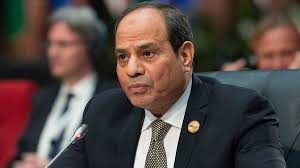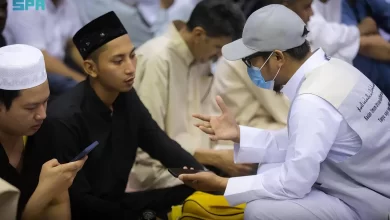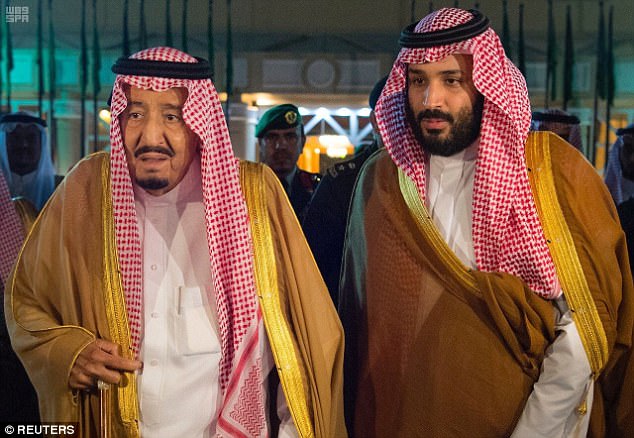
Ashraf AboArafe
23 February 2021, CAIRO – The Energy Transition Council (ETC), established by the UK as one of the main initiatives of its COP26 presidency, hosted its first working-level national dialogue with Egypt yesterday. Chaired by UK COP26 President Alok Sharma and co-chaired by Ms. Damilola Ugunbiyi, Special Representative of the UNSG for Sustainable Energy and Sustainable Energy for All (SEforALL), the ETC provides a platform for Egypt to showcase its regional leadership on clean energy.
This is the first of a series of dialogues, bringing together the best financial and technical expertise from the international community. Attendees discussed how to respond to key opportunities to raise Egypt’s Integrated Sustainable Energy Strategy (ISES) 2035 ambition, meet its renewable energy and energy efficiency targets, and take ambitious clean energy goals as well as how to address the country’s challenges in achieving a clean energy transition.
Yesterday’s dialogue with Egypt was led by the Egyptian Ministry of Electricity and Renewable Energy with support from the UK, and co-hosted with France and Denmark. Key participants included the Minister of Electricity and Renewable Energy Dr Mohamed Shaker, British Ambassador to Egypt Sir Geoffrey Adams, French Ambassador to Egypt Stephane Romatet and Danish Ambassador to Egypt Sven Ouling, as well representatives from the Ministry of Environment, the Ministry of Foreign Affairs, United Nations, European Bank for Reconstruction and Development (EBRD), International Finance Corporation (IFC), World Bank and the French Development Agency (AFD).
In his opening remarks Minister Shaker explained that energy transition is a path towards the transformation of the global energy sector from dependence on fossil fuels to zero carbon. The disposal of carbon in the energy sector requires many urgent actions on a global scale to reduce carbon emissions and mitigate the effects of climate change. He added that this will be achieved through a number of measures, such as reducing energy costs generated from renewable energies, achieving development in energy and electricity storage technologies, increasing the use of electric cars and smart grid technology, and regional and international interconnection in order to benefit from all forms of renewable and clean energy.
- Shaker pointed to the measures taken by Egypt to create a suitable environment for the transfer of energy in Egypt. The sector is working on adopting various technologies that help in the way energy is transferred, such as moving towards the use of hydrogen as a source of renewable energy, increasing the participation of renewable energies in the energy mix and using various mechanisms to encourage private investment in this sector.
He expressed his appreciation for the UK’s presidency of the upcoming climate conference (COP26) to be held in November 2021 and indicated that Egypt affirms its support and participation with the UK government in this effort.
He pointed out that Egypt realizes the great importance of the COP26 conference, which coincides with a time where the whole world is witnessing unprecedented challenges, all related to climate change. The COVID-19 pandemic has clearly shown that developing countries (especially Africa) are most affected by climate change than others.
He affirmed his confidence that these dialogues will greatly help enhance cooperation, and shed light on the latest challenges and potentials in the energy sector, with the aim of enhancing future cooperation to achieve a clean energy transition.
British Ambassador to Egypt Sir Geoffrey Adams said: “Egypt has introduced several energy-sector reforms to promote investments in renewable energy-based electricity generation, including the establishment of five new renewable energy plants in the Gulf of Suez and Aswan, and we are proud to support Egypt’s transition to clean energy. Holding such dialogues, and setting ambitious action on clean energy and climate change, will not only attract new climate finance but will also help Egypt build back better and stronger from Covid-19. We look forward to working closely together in the run up to COP26 in November.”
The UK and Egypt have been cooperating on several clean energy projects already, the latest being last year’s listing of Egypt’s first sovereign green bonds, worth $750m, on the London Stock Exchange. These will help fund projects in a number of vital areas, including renewable energy, clean transport, sustainable water and wastewater management, and pollution reduction and control.
The ETC, which was launched in September 2020, holds dialogues with various countries around the world and comprises leaders of international organisations, multilateral development banks and other global development partners. Its objective is to make clean power technologies a priority option for countries investing in power generation projects, with the aim of doubling the rate of global investment in clean energy by 2035, coalescing the global community to assist in addressing specific high-level bottlenecks to achieve clean energy goals and achieving the seventh UN Sustainable Development Goal (SDG7) of ensuring access to affordable, reliable, sustainable, and modern energy for all.




